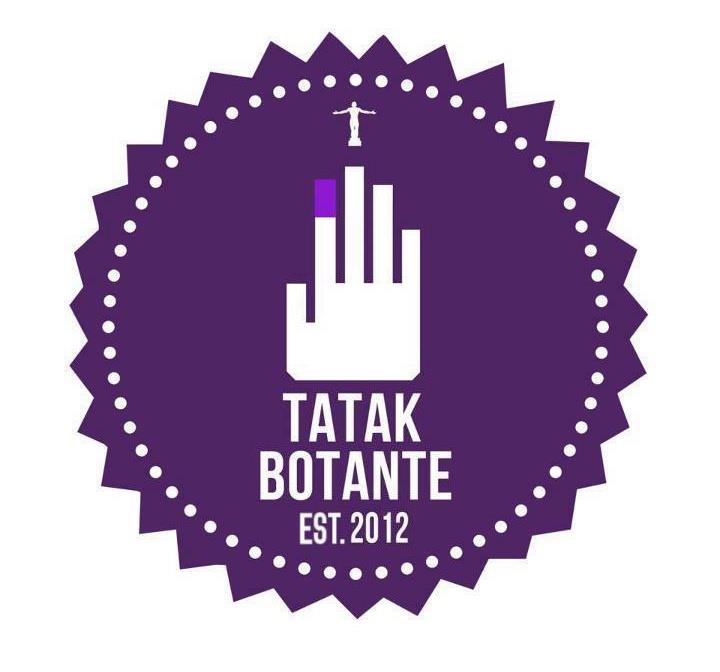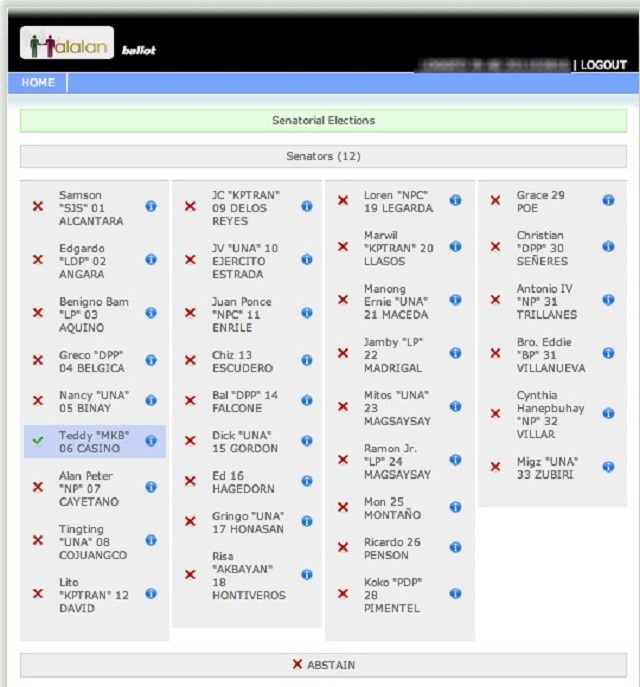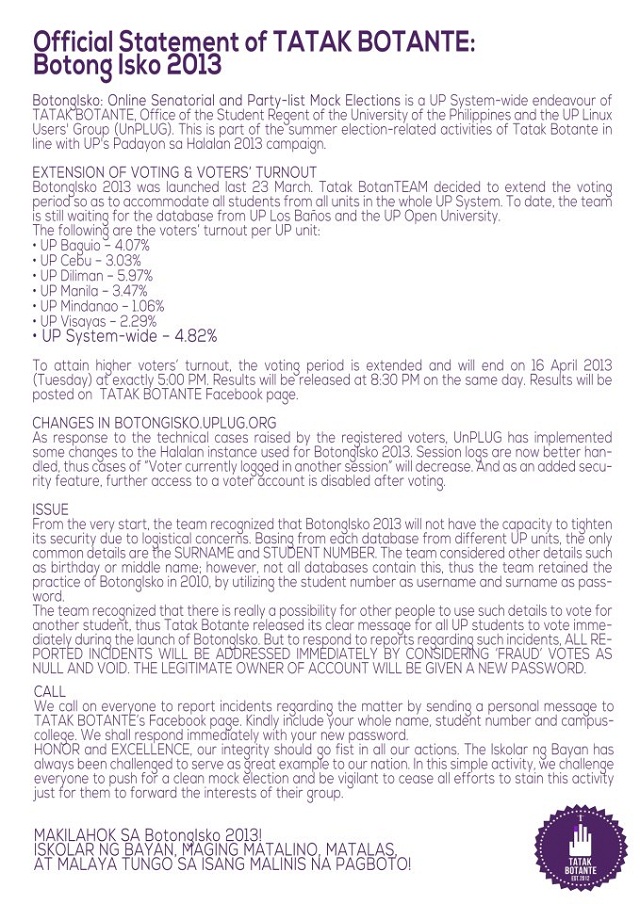SUMMARY
This is AI generated summarization, which may have errors. For context, always refer to the full article.
MANILA, Philippines – Often described as a microcosm of the country, the University of the Philippines (UP) has been witness to alleged cheating in online mock elections held recently.
Hoping to gather students and encourage them to participate actively in the coming elections, the student council of UP-Diliman spearheaded BotongIsko 2013 (Scholar’s Vote), a system-wide online national mock election.
Through Botong Isko, students are allowed to choose their candidates simply after a few clicks. BotongIsko 2013 is part of the year-long campaign on voters’ registration and education referred to as Tatak Botante (Voter’s Mark), convened in 2012 by the student council’s education and research committee.
It aims to inspire action from the youth sector to participate in matters of national interest, particularly the midterm elections. Aside from online mock elections, the campaign includes voters’ registration, senatorial convocation, and voters’ education.

Education and Communication Research head of the student council Jules Guiang told Rappler that UP students should be at the forefront of initiatives that encourage the youth to exercise their right of suffrage. This is the foundation of the committee’s voters’ education campaign.
“At the end of the day, babalikan natin`yong hamon sa atin na tayo ang nagli-lead sa youth sector na i-utilize `yong right of suffrage natin nang maayos, na we are beyond mainstream on selecting our candidates or officials, na mas malalim ang pagsusuri natin,” Guiang said. (At the end of the day we look back to our challenge as leaders of the youth sector, and we utilize our right of suffrage properly – that we are beyond mainstream in selecting our candidates or officials, that are more critical when we examine them.)
Unfortunately, the supposedly promising campaign is now badly marked with a case of fraud.
Ghost voter
On its second week, Botong Isko, already recorded a cheating incident.
Edmer Maguan, a Communication Research student in UP Diliman, logged in to his account supposedly to participate in the online mock elections. To his surprise, his account already reflected registered votes even before he actually put in his own.
“So naisip ko (So I thought), might as well exercise my right to vote even in the mock elections. Pag log-in ko, na-confuse ako kasi may vote na. (When I logged in, I got confused because votes were reflected already.) Akala ko parang example lang siya and then eventually na-realize ko na na-register na `yong vote and results na lang siya (I assumed it was just an example, and then eventually I realized that the votes were already registered, and those were the results already),” Maguan told Rappler.
Upon logging in, Maguan realized that his account already reflected registered votes for Kabataan partylist and senatorial candidate Teddy Casiño.

Flawed mechanics
Guiang admits there are flaws in the mock elections.
The limitations in logistics and funds have led to security issues, which in turn, cast doubt on the integrity of the online mock elections.
Due to logistical limitations, the team has had to settle for the current set-up for logging into the voting account with the use of a voter’s student number as username and his or her surname for the account’s password. These generic details are the only information available across all UP units.
“Kasi UP system-wide siya eh (This is implemented across all UP systems). `Yung database sa buong system ay hindi magkakapareho (The database of the systems are not the same). Dati kino-konsider namin kung pwede ba `yong password ay birthday o middle names (Before we considered using birthdays or middle names as passwords). Eh`yong ibang UP campus wala`yon (But in other UP campuses, these were not available),” Guiang explained.
Given the conditions set up by the online mock election’s mechanism, in theory, anyone who has access to these generic information — student number and surname — can easily hack into an account and register a vote. Given mechanics for voting, committing fraud vote is easy.
The Botong Isko team is taking into consideration the problems and complications brought about by technological and logistical limitations.

Call for active participation
Botong Isko team can only address cases that are being reported to them.
Guiang admits they do not have enough means to verify the authenticity of the alleged fraud votes. This is why he encourages UP students to actively participate in the online mock elections and report similar cases of irregularities.
In cases such has Maguan’s, they will be provided with a new password and the previously recorded vote considered null and void.
“We are mocking a clean election, supposedly. We are not mocking the vote system na meron tayo. (We are not mocking the vote system we have.) It’s very sad na may ganitong case. (It is very sad that we have a case like this),” Guiang said.
Meanwhile, the Kabataan partylist issued a statement and asked the organizers to clarify the issue.
“We in Kabataan have no knowledge of how the said mock election was conducted. We trust that the UP USC and the organizers of Tatak Botante will shed light on this issue and ensure that the voting mechanism has no inherent flaws that people with certain insidious agenda can exploit.”
Botong Isko was launched on March 23 and is extended until April 16, 2013. Online voting closes at 5:00 pm on April 16. – Rappler.com
Add a comment
How does this make you feel?
There are no comments yet. Add your comment to start the conversation.